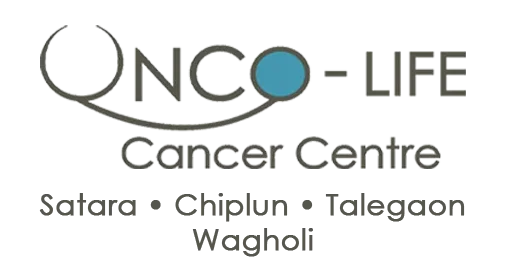Modern oncology has moved beyond the traditional triad of surgery, chemotherapy, and radiation to embrace a precision medicine approach that tailors treatment to the unique biology of each tumor and patient. The current landscape features a sophisticated integration of older, established tools with cutting-edge modalities like targeted drugs and immunotherapy, all aimed at improving efficacy and quality of life.
This comprehensive guide explores the various treatment modalities available today and how they are combined to create personalized cancer care plans.
Foundational Treatment Modalities
These methods form the established backbone of curative and palliative cancer care.
1. Surgery
Surgery remains one of the most common and effective forms of treatment, particularly for localized cancers detected early [1]. It involves physically removing the tumor and, often, a margin of surrounding healthy tissue to ensure complete eradication of cancerous cells.
- Advancements: Modern surgical techniques, such as minimally invasive laparoscopic and robotic-assisted surgery, have enhanced precision, reduced intraoperative blood loss, minimized scarring, and significantly shortened patient recovery times [2].
2. Radiation Therapy
Radiation therapy uses high-energy particles (like photons or protons) or waves to damage the DNA of cancer cells, leading to their destruction. It can be used as a primary standalone treatment (curative) or in combination with other modalities.
- Advancements: Modern techniques like Intensity-Modulated Radiation Therapy (IMRT) and Tomotherapy allow for precise shaping of radiation beams, which focuses the highest dose on the tumor while sparing healthy surrounding tissues [3]. Proton therapy, a newer form of radiation, offers highly conformal doses, making it especially useful for treating tumors near sensitive organs (e.g., in the brain or spinal cord) [4].
3. Chemotherapy
Chemotherapy involves the use of cytotoxic drugs to kill rapidly dividing cells. It is essential for treating metastatic cancer (cancer that has spread) and for reducing tumor size before surgery (neoadjuvant) or eliminating residual cells after surgery (adjuvant).
- Integration: Recent advancements focus on targeted delivery systems and combining chemotherapy with newer agents, aiming to enhance efficacy while reducing the impact on healthy cells and minimizing systemic side effects [5].
Precision and Systemic Therapies
These advanced treatments leverage molecular understanding and the body’s own defenses.
4. Targeted Therapy
Targeted therapy utilizes drugs that are designed to interfere with specific molecules (targets) necessary for cancer cell growth, progression, and spread. These targets are often unique to cancer cells or are significantly overexpressed in them.
- Mechanism: Examples include drugs that block signaling pathways that tell cancer cells to multiply or drugs that inhibit the growth of new blood vessels needed to feed the tumor (anti-angiogenesis) [6].
5. Immunotherapy
Immunotherapy is a groundbreaking modality that harnesses the body’s own immune system to recognize and attack cancer cells [7].
- Mechanism: Checkpoint inhibitors (e.g., anti-PD-1/PD-L1) work by releasing the “brakes” on immune T-cells, allowing them to identify and destroy tumors that previously utilized those checkpoints to hide. CAR T-cell therapy involves harvesting a patient’s T-cells, genetically modifying them in a lab to target specific cancer antigens, and reinfusing them [7].
- Challenges: While immunotherapy can yield durable control, not all tumors are responsive, and it can trigger immune-related side effects (e.g., colitis, pneumonitis, thyroiditis) that require expert, timely management [8].
6. Hormone Therapy
Hormone therapy is a specific form of targeted treatment used for cancers that are driven by hormones (primarily breast and prostate cancers) [6].
- Mechanism: Treatment aims to either lower the level of specific hormones in the body (e.g., using aromatase inhibitors for post-menopausal breast cancer) or block the hormones’ effects on cancer cells (e.g., using Tamoxifen for breast cancer or anti-androgens for prostate cancer).
7. Stem Cell Transplant (Bone Marrow Transplant)
Stem cell transplants are crucial for restoring the body’s ability to produce healthy blood cells following high-dose chemotherapy or radiation. This treatment is particularly vital for blood cancers like leukemia, lymphoma, and multiple myeloma [9].
- Types: They can be autologous (using the patient’s own cells) or allogeneic (using cells from a donor).
The Power of Combination (Adjunctive) Therapy
Modern oncology rarely relies on a single treatment. Adjunctive or combination therapy involves integrating multiple modalities to enhance the effectiveness of individual treatments and overcome resistance.
- Examples: Combining surgery with neoadjuvant chemotherapy (before surgery) to shrink the tumor, or integrating immunotherapy with radiation to potentially sensitize the tumor to immune attack [10]. By using a multi-faceted approach, doctors can tailor the plan to the specific molecular profile of the cancer, potentially improving survival rates and reducing recurrence risk.
Conclusion
The evolution of cancer treatment offers patients a multi-faceted arsenal. From the precision of robotic surgery and conformal radiation to the biological ingenuity of immunotherapy, the goal of modern oncology is to optimize cancer treatment and ensure the best patient outcomes by matching the right combination of therapies to the individual’s cancer profile. As research continues to advance, personalized, integrated care stands as the most promising path toward successful disease control and improved quality of life.
Disclaimer
The content of this blog is for informational purposes only and is not a substitute for professional medical advice, diagnosis, or treatment. Always seek the advice of your qualified healthcare provider with any questions you may have regarding a medical condition or treatment plan. Treatment decisions are highly personalized and must be made in consultation with a multidisciplinary oncology team.
References
- National Cancer Institute (NCI). (2023). Surgery to Treat Cancer. Contextual Link:
- American Society of Clinical Oncology (ASCO). (2020). Minimally Invasive Surgery for Cancer. Contextual Link:
- American Cancer Society (ACS). (2022). Understanding Radiation Therapy. Contextual Link:
- National Association for Proton Therapy (NAPT). (2023). What is Proton Therapy? Contextual Link:
- National Cancer Institute (NCI). (2023). Chemotherapy to Treat Cancer. Contextual Link:
- American Cancer Society (ACS). (2023). Targeted Drug Therapy for Cancer. Contextual Link:
- National Cancer Institute (NCI). (2022). Immunotherapy to Treat Cancer. Contextual Link:
- Puzanov, I., Diab, A., & Horvat, S. Z. (2017). Managing toxicities from immune checkpoint inhibitors: consensus recommendations from the Society for Immunotherapy of Cancer (SITC) Toxicity Management Working Group. Journal for Immunotherapy of Cancer, 5(1), 95. Contextual Link:
- Mayo Clinic. (2023). Bone Marrow Transplant. Contextual Link:
- Luke, J. J., & Postow, M. A. (2019). The synergy of radiation and immune checkpoint inhibition. Clinical Cancer Research, 25(11), 3209-3215. Contextual Link:
Frequently Asked Questions
blog – Modern Cancer Treatments: From Surgery to Immunotherapy
What Is Immunotherapy, And How Is It Different From Chemotherapy?
Immunotherapy activates your immune system to attack cancer; chemotherapy directly kills fast-dividing cells. Immunotherapy can produce longer, deeper remissions in selected cancers, but works best when biomarkers predict benefit. Chemotherapy often acts faster but with broader side effects. Many patients receive combined or sequenced regimens for synergy.
Which Cancers Respond Best To Immunotherapy Treatments?
Strong evidence exists in melanoma, lung, kidney, urothelial, head-and-neck, lymphoma, and MSI-H/dMMR tumors across sites. Response depends on biomarkers (PD-L1, MSI-H, tumor mutational burden) and tumor “immune warmth.” Your oncologist will test for these before recommending a checkpoint inhibitor or a clinical trial.
How Long Does Immunotherapy Take To Show Results?
Timelines vary. Many patients are reassessed at 6–12 weeks using scans and symptoms. Some see early shrinkage; others show pseudoprogression (appearing larger before improving). Decisions combine imaging, labs, and clinical status. Treatment often continues for up to 1–2 years if responding and tolerated.
Can Immunotherapy Be Combined With Other Cancer Treatments?
Yes. It’s frequently paired with chemotherapy, targeted therapy, or radiotherapy to increase response and prevent escape pathways. Integration depends on cancer type, stage, and fitness. In curative settings, it may be used before/after surgery; in metastatic disease, combinations aim for deeper, more durable control.
Are There Any Risks Or Side Effects Associated With Immunotherapy?
Immune activation can inflame organs: skin rash, thyroid imbalance, diarrhea/colitis, hepatitis, pneumonitis are typical examples. Most are manageable if detected early with steroids or hormone replacement. Report new cough, breathlessness, persistent diarrhea, jaundice, severe fatigue, or high fevers promptly; do not self-medicate.
Is Immunotherapy Widely Available In India For Cancer Patients?
Checkpoint inhibitors are available at major tertiary cancer centres and many private hospitals in metros and tier-2 cities; access is growing. CAR T-cell therapy is emerging at select institutes. Coverage varies—some patients use government schemes/insurers, others self-pay. Discuss costs, eligibility, and biomarkers with your oncologist and hospital financial counsellor.


